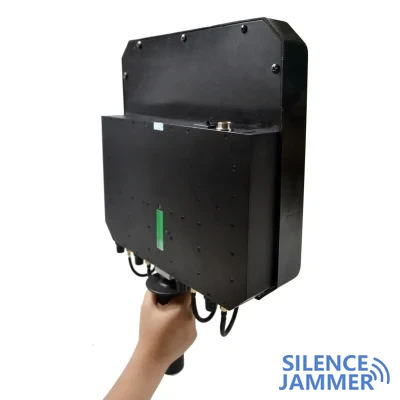Before deciding to purchase a signal jammer, it is important to understand some key considerations. This article will discuss in detail what you should consider before purchasing a signal jammer, as well as provide practical purchasing advice and tips to help potential buyers make an informed decision and ensure that the device they purchase meets their needs and complies with legal requirements. Key questions to consider before purchasing a signal jammer.

1. Legality of the equipment
In many countries and regions, the use of signal jammers is restricted by law. Before purchasing, it is necessary to first understand the local laws regarding the use of signal jamming equipment. Ask the supplier about the legality of the equipment and ask for appropriate certificates or licenses for legal use.
2. Interference frequency range
Different signal resistors are designed to operate in different frequency ranges. Confirming that the device can cover the specific frequency bands that require a screen, such as GSM, 3G, 4G, Wi-Fi, etc., is critical to the effectiveness of the device.
3. Cover range and power
Choose the appropriate coverage and power level based on the size of the area you need to shield. Coverage that is too large or too small may not suit your actual needs. Ask the supplier about the device's maximum effective coverage area and power output.
4. Equipment portability and installation requirements
Consider whether you need portable equipment or permanently installed equipment. Portable units are suitable for temporary or mobile use, while fixed units are better suited to continuously provide shielding in an area.
5. Power consumption and power requirements
Understand the energy consumption and power requirements of your equipment and ensure your facility can meet these needs. High-power devices may require specialized power supply configurations.
6. Maintenance and support
Consider long-term maintenance and equipment support. Find out whether the supplier offers warranty services, technical support and repair services. The serviceability of the equipment and the level of support provided by the vendor can influence the convenience and cost of long-term use. Buying recommendations and tips.
1. Compare different suppliers in detail
Get information from multiple vendors and compare their product performance, price, and customer service before purchasing. Read customer reviews and case studies to learn about other users' experiences.
2. Verify product quality
Seek opportunities to test the device yourself or view a demo to verify its performance meets your needs. High-quality equipment generally has a longer service life and greater user satisfaction.
3. Budget and cost-effectiveness
Create a budget and consider the long-term return on investment of purchasing a signal jammer. It’s not necessary to choose the cheapest option, but rather the device that offers the best value for money.
4. Subsequent upgrades and scalability
Consider the equipment’s ability to upgrade and expand in the future. As technology evolves, you may need to upgrade your equipment to meet new challenges and needs.
5. Professional consultation
If possible, consult an industry expert or technical advisor to get professional advice on what type of signal jammer to purchase.
In conclusion
Selecting and purchasing a signal jammer is a decision-making process that requires careful consideration. By paying attention to the key questions above and following these buying suggestions, you will be able to choose a device that complies with legal requirements, meets your needs, and is cost-effective. The correct choice can not only effectively fulfill your needs, but also ensure the long-term stable operation of the equipment.












